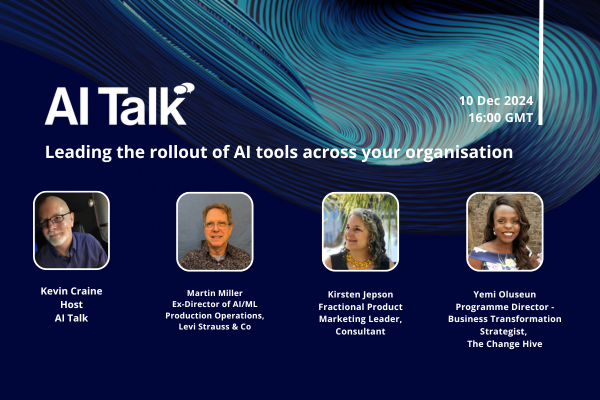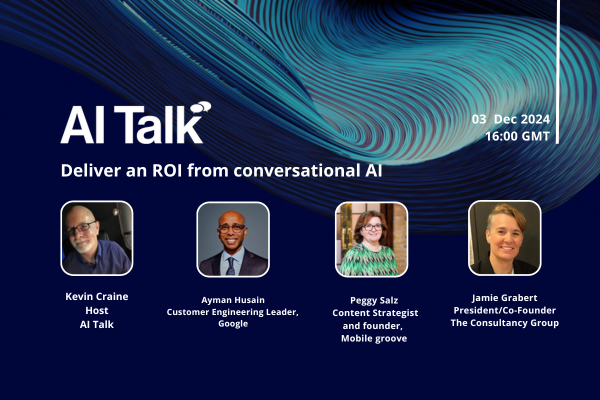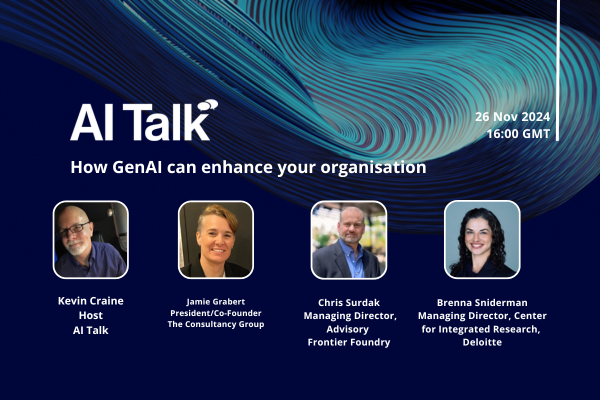Five reasons why businesses are going big on automation-February 2021

Simon Spring at WhereScape describes the many reasons that businesses are embracing automation, including agility, efficiency and better decision making.
Automation is big news. The rapid pace of development across key enabling technologies, from Artificial Intelligence and machine learning to data science and analytics has catapulted it into the business mainstream.
Recent years have seen automation technologies leave their industrial niche, and today they have become a mainstream strategic imperative for companies across the economy. COVID-19 has also boosted the adoption of automation technologies, as organisations moved quickly to mitigate the impact of remote working and lockdown.
But for many, particularly smaller organisations, the concept remains somewhat nebulous. Why, for instance, are businesses automating with greater urgency and conviction? And what is behind growth in the Intelligent Automation market that KMPG predicts will take it from $12.4bn in 2020 to $232 billion in value by 2025? There are a range of motivating factors:
1: To become more agile
Business agility is about being able to identify, predict and adapt to challenges and opportunities in their markets. To a greater or lesser extent, every organisation trades on its ability to change at critical moments, to continually develop or even reinvent itself.
But, by identifying and automating repeatable patterns, organisations can iterate more quickly, reducing time to value while significantly increasing accuracy. In turn, this enables greater consistency, agility and competitiveness.
Businesses that automate to become more agile experience a greater level of consistency across resources and projects, while easing ongoing maintenance. What’s more, agility through automation allows frequent changes to business needs that can be more easily incorporated within a viable timeframe.
2: To optimise efficiency and performance
Automation has always offered businesses the ability to improve efficiency, reduce errors and minimise costs. From its origins in industrial applications, the precision offered by this technology has driven improvement in processes and produced more predictable results while minimising waste.
When focusing on IT-led innovation, for instance, automating repetitive tasks means developers can spend more time focusing on building business value and remain more engaged by working on items of strategic value. Indeed, by automating certain job functions, software developers can boost productivity five-fold and deliver significantly greater value back to the business.
3: To improve the impact of technology
Automation allows business & IT teams to collaborate more effectively - a critical objective across today’s tech-led organisations. In doing so, stakeholders can focus on value rather than process. As a result, business users feel comfortable that they don’t need to know all the details before engaging in a project - they can start with what they know and evolve as they work through the data with developers.
4: To optimise the use of data
Data has become a core commodity in the global drive for competitive advantage. For example, companies aiming to modernise their data infrastructure often pair automation with cloud computing to achieve common goals: saving money and increasing agility. While the cloud allows companies to only pay for storage and compute capabilities they use, Data Automation also enables teams not to waste time on repetitive hand coding tasks that are no longer necessary.
In addition to these complementary qualities, Data Automation is essential for reducing the time to value for cloud migration projects. For instance, automation tools can be used to generate the majority of the code needed for the migration, reduce the technical complexities of the project and ensure the infrastructure does what is expected first time.
5: To improve decision making
Business leaders the world over are looking to automation to supplement their decision making processes or remove human involvement entirely. By leveraging data science and machine learning to offer actionable insight across huge data sets, organisations can focus on improving risk management, governance and meeting regulatory and compliance obligations.
By bringing together past and present data with intelligent analytics, it becomes possible to build more certainty and confidence into decision making. Add this to the skills and experience of the human workforce and organisations can evaluate new opportunities and risks in greater detail, more quickly and without the need to allocate significant physical resources.
Automation has become an essential tool in the business and IT arsenal to face the ever-changing and competitive landscape. Indeed, to survive and thrive in the information era, it is now the essential bedrock of ongoing efforts to improve and innovate. At its core, automation remains founded on a desire for efficiency and value, but what was once restricted to industrial production line applications with the use of robots, today’s automation strategies can also focus on a myriad of ‘back office’ tasks.
As technology continues to develop and the automation sector matures, the pace of change will accelerate further, with organisations of all sizes able to cherry pick which processes and activities can be given over to automation. In turn, business leaders can focus human skills on higher value, creative and innovative roles.
Simon Spring is Account Director EMEA, at WhereScape. Simon joined WhereScape nearly ten years ago and throughout this time has worked effectively with hundreds of organisations looking to utilise data analytics and data warehouse automation to transform their business.
Mai image courtesy of iStockPhoto.com

Business Reporter Team
Most Viewed
Winston House, 3rd Floor, Units 306-309, 2-4 Dollis Park, London, N3 1HF
23-29 Hendon Lane, London, N3 1RT
020 8349 4363
© 2024, Lyonsdown Limited. Business Reporter® is a registered trademark of Lyonsdown Ltd. VAT registration number: 830519543





